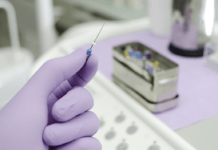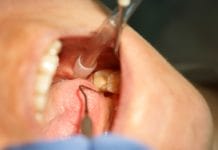Over the past three years of clinical experience, I have been introduced to many different dental professionals, especially hygienists. Everyone possesses their own opinions, perspectives, and experiences about the profession. My goal here is to have hygienists reflect on their dental hygiene career based on their experience − a new graduate, a hygienist with a few years under her belt, and a hygienist with 10-plus years of experience.
We will start in the middle of the road − a hygienist with a few years under her belt. Actually, I have two hygienists. Each hygienist’s interview will be in separate articles (See the continuation of this pair of interviews in the second part). Interestingly, they attended the same dental hygiene school, but they live and work in different states. One hygienist that will be introduced is from Rhode Island, and the other one, who wishes to stay anonymous, is from Massachusetts. This was a great opportunity to compare and contrast their experiences in and outside of school. Everyone is different, even with similar factors or variables. (On a side note, neither hygienist spoke to the other about their answers.)
In part one, you will meet Mary Reis, RDH, who has been a hygienist since 2017. She is currently working four days a week in a large private practice in her home state of Rhode Island. Mary mentions that “the practice includes four doctors, four other hygienists, and six or more assistants, plus an administrative team of 10-plus, but not all work on a daily basis.”
Machado: What got you into dental hygiene?
Reis: Honestly, I was going to go into culinary arts up until the year after I graduated high school. But then I figured out I literally hated working in a kitchen. So I researched careers in my car after work one day and came across dental hygiene.
I remember wondering if I would like it and thinking that I could use it as a stepping stone and go back later for something else. But I’m glad that’s what I chose because I love my field. I couldn’t have picked a better one for myself. I’m also thrilled that I didn’t waste my time and money on culinary school! I still love to cook at home, though.
Machado: What’s one thing you remember from dental hygiene school? Good, bad, or funny?
Reis: I’m going to keep it to a good thing because there were a lot of bad things by the time hygiene school was over. But one of my favorite memories was going to a board review in Connecticut and having the extra time to go to New York City with my classmates. We had a great time! Definitely one of my favorite memories.
As far as clinical things that I remember from hygiene school daily, I still think to myself, “Close, insert, open, activate,” when I use my Graceys, and I can hear my instructors giving me tips almost every time I give local anesthesia too. I doubt that will ever go away!
Machado: What’s one thing you wish you knew before going into dental hygiene?
Reis: I wish I had known how hard it is on your body, honestly. I’m only a few years in, and I truly wonder how people can practice for 20-plus years. I don’t know that I would have changed careers over that because every career is hard on your body in different ways. But I definitely wasn’t aware of the toll that full-time work takes on you from top to bottom.
Machado: What do you do to remain healthy, such as how do you avoid or handle health concerns related to the profession such as wrist issues or other ergonomic issues?
Reis: Well, before the pandemic, I was able to power scale and polish first, but that’s been out the window lately. So I just make sure I’m using super sharp instruments. I make sure I’m not using my fingers to activate the strokes because I feel it almost immediately.
I also see a chiropractor every six weeks for maintenance. Before the pandemic, I was also getting a 60- to 90-minute massage every six weeks for relaxation. My amazing massage therapist recently retired, so I’m on the hunt for a new one. I have a goal to incorporate yoga into my routine somehow, because I know I need to stretch more and do more on a daily basis for muscle health.
Machado: Do you have any memorable clinical stories?
Reis: Hmm, I definitely do! One crazy story is from my old office. I used to love giving local anesthetic and watching my favorite dentist do extractions. One time, she let me watch an extraction on a man who needed his canine taken out due to a good-sized infection. She extracted the whole tooth with the abscess completely intact at the apex. It was gross but so cool and I haven’t seen anything like it since.
Machado: Describe your first job out of hygiene school? Was it a good or bad experience?
Reis: Well, my start was a little rocky. It is a cautionary tale, but I’m going to share it anyway. I was contacted on a job search website before my license was active, was asked to interview before I had my license, and then told me I needed to shadow unpaid for the two weeks it would take my license to process to get a feel for everything, which I did.
When I did start working, I was paid about $3 to $4 less than the going rate for that area because that’s what I asked for. I worked for a group practice with a lot of offices and I shadowed at their more up-to-date and biggest office that was about 30 minutes from me before they told me that I was going to their smaller, out of date, 60-plus minute drive from my house offices, one of which was in a terrible part of town.
They could not hold a front desk staff and at multiple points in my time there I was expected to see patients, check them in and out, do the hygiene appointment, take payment and insurance cards, and reschedule for their next appointment − all in a 45-minute window per patient. I was completely alone in the office and told it was OK because they had security cameras.
There were OSHA violations everywhere. A few examples that I can think of were that the suction and waterlines weren’t run regularly, and our break area seemed a little too close to the open sterilization area. Another concern I had was not being given any sort of power instruments to scale. I ended up taking my kits from hygiene school and making my own packs that I would take with me at the end of the day, maintaining them myself because their instruments were so dull and outdated. We can definitely take for granted the necessities of everyday supplies and dental hygiene instruments when nothing is available to you.
I could keep going on and on, but, as soon as I could leave, I did. I did work at another one of their offices for an amazing doctor who I absolutely loved and still adore to this day. But I was only there two days a week. It was an eye-opening learning experience, that’s for sure.
Machado: What’s an obstacle or challenge you have faced at work, such as patient compliance, a fellow employee, or insurance company?
Reis: I think the biggest obstacle that any clinician experiences are most patient’s overwhelming desire to stay within the confines of their insurance maximums and coverage. You can discuss, recommend, and educate until you’re blue in the face. The patient is on board, but, then as soon as they sit down with the treatment coordinator and see the finances, they backtrack and only want what insurance covers.
It’s true for a lot of procedures, but, for hygiene, it’s the people who desperately need to come three or four times per year instead of two. But they refuse to pay out of pocket.
Another situation is patients who present with severe periodontal disease and only want a regular cleaning. You give them all the information they need to make an informed decision about their health, and they don’t want to listen.
It’s hard at first not to take it personally, because when you’re straight out of hygiene school, you want people to care about their oral health as much as you do. But the truth is some people don’t, and it’s not a reflection on you as a clinician.
Machado: What’s the biggest lesson you have learned from your dental hygiene career experience?
Reis: The absolute biggest lesson I’ve learned so far and the one I will always give to new grads and students is to know your worth! If you lowball yourself when asking for a salary, you’re only hurting yourself. Ask for more. Don’t ask for less, because you’ll get less, and, for a lot of people in this field, raises are not super common.
At a previous office, I found out someone with an identical resume, same graduation date, and same hire date was being paid $3 more per hour for the exact same job and days per week just because she asked for more. I was told to keep my salary private and not discuss it with anyone. Now I know why that was encouraged so much.
Another thing is that continuing education immediately after hygiene school is crucial to your success. I’ve learned so much more since hygiene school through CEs. Even though they’re required, you should be trying to do as much as you can on topics you’re interested in, because it only makes you a better clinician over time.
Machado: What’s your advice to a new grad? A future dental hygienist? Or a dental hygienist with a few years under their belt?
Reis: You need to know that you may not find your perfect office right away, and you’re going to need to kiss some frogs, working for places that you might really dislike. But use those places to gain experience. Also, it’s important to know what to look for when you’re looking for a new job.
Recognize red flags during interviews, and don’t take the job if it doesn’t feel right. Don’t forget you should always be paid for working interviews, even if it’s only a few hours, and those working interviews are the best way to gauge the office’s practices and equipment. Don’t ever feel bad about declining a job offer that doesn’t feel right.
Machado: What’s the proudest moment in your career so far?
Reis: I would say my proudest moment so far is getting accepted into my master’s program and realizing that this is what I want to do for my life! I was debating a few other degree programs. But I knew that this one would benefit me the most. So I’m thrilled I was accepted, and I can start this new journey.
Machado: What’s next for you in your career?
Reis: My next trajectory is going back to school while still maintaining a full-time workweek. I’m heading back this fall, starting my first semester of an associate’s to master’s bridge program where I will do three years of year-round classes to graduate with a master’s in dental hygiene with a concentration in education.
The goal is to go back and teach classes at a hygiene school. I’m nervous but very excited!
Machado: Where do you see the dental hygiene profession in 10 years?
Reis: This is a great question, because, honestly, I’m not sure. I would love to see the profession advance and hygienists being able to expand their scope with more training as we did with local anesthesia. There are a few places allowing hygienists to learn simple restorations and extractions, which is very useful in public health.
In the private sector, it would be great to see more independent hygienists, where a hygienist can own their own practice as long as they have a working relationship with a local dentist they can refer patients to.
Machado: Is there anything you wish you could change about the profession?
Reis: I think the only thing I would change would be the fact that it’s very difficult to find an office where you can get benefits. I’m extremely blessed that I have an employer who is generous with the benefits package and knows the value that brings. But this is the first office I have worked for that offered anything.
I believe that, if there was a union for hygienists like other professions have, we could ensure that we are all offered the same benefits and competitive salaries across the board.
I also think that it should be easier to get a dental hygiene license in some states, if you took a live patient board and graduated from an accredited program. That should stand no matter where you came from or where you want to go.
Machado: What is your favorite part of being a dental hygienist?
Reis: My favorite thing about being a hygienist is the impact you can have on people during your time with them. It may be a clinical impact, and, for the first time, they’re excited about their oral health or ready for improvement, which is always an amazing feeling. Other times it could be a personal impact because we are a listening ear for them to talk about what’s happening in their personal lives and they just need to let something out.
I’ve had patients cry, and I’ve cried with patients too. It can become a very personal bond, and you look forward to seeing your favorite patients on the schedule.
Machado: Any other comments about your experience, perspective, advice, feedback, etc.
Reis: As I said earlier, I definitely place a lot of value in continuing education. I’ve learned so much more and discovered parts of dentistry that I didn’t know that I enjoyed. Take advantage if your office offers free CEs or will reimburse you. Go to conferences and take classes you wouldn’t normally pick. Become the most educated clinician you can, and your words will hold more weight with your patients when you can talk to them more in-depth and with more information.
And, please, please, please recognize an office’s red flags. Know that if they have a high turnover there is probably a very good reason. You will find your unicorn office eventually. It takes time and when people find a great job they stay!










